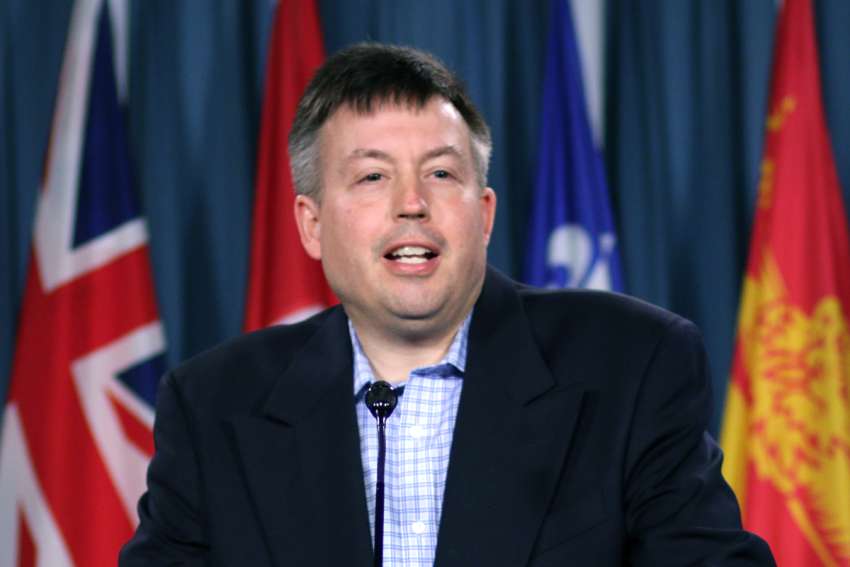While they could not uncover a monetary account of the MAiD landscape in Canada’s largest province, they made a discovery that should raise some pressing questions for the Ontario Ministry of Health: palliative care bill codes are apparently being used for euthanasia procedures.
Late last month, both Schadenberg and Maloney unveiled a six-page document called OHIP Payments for Medical Assistance in Dying, which was produced in November 2018. A link to this file on a Google Drive account was attained via a freedom of information request. The Catholic Register could not find this document via a simple web search.
This record does not reveal any specific monetary figures, but it does indicate that a palliative care support billing code (K023) is being recommended for MAiD procedures.
“This creates an issue for me because the Ontario government claims to be increasing funding for palliative care,” said Schadenberg. “Yet when we look at palliative care there is a lot of questions as to whether they have received more funding or not. We know that there is some, I’d say, palliative care building going on. There are certain cities where they are building a new palliative care or hospice. There is investment on that side.
“But the question is are they actually spending more money as the money they are spending on MAiD is within the palliative care budget. This confuses the situation right out. How do you determine how much is being spent on MAiD, and how much is being spent on palliative care?”
According to OHIP Payments for Medical Assistance in Dying, the palliative care code K023 can be used first for the billing of the procedural planning and case management dimension of MAiD. This includes “discussions with other health care providers (e.g., other physicians, pharmacist, coroner, CCAC) involved in the management of an individual patient’s medical assistance in dying request.”
It is also utilized for the steps of the actual practice. This includes: travel time spent picking up and returning any drugs used; time spent with the patient and family; obtaining final consent; drug administration; pronouncement and certification of death; counselling of relatives as necessary; meeting reporting requirements; and notification of the coroner’s office.
As many as two eligible physicians have admitted to being paid using K023.
The Register made numerous phone calls to the Ontario Ministry of Health and several emails were semt seeking comment and explanation about this document and the overall MAiD funding approach but received no answer.
Nicole Scheidl, the executive director for Canadian Physicians for Life, reviewed Schadenberg’s Euthanasia Prevention Coalition blog entry and concurred “there is a lot of opacity” on this matter.
“People are really trying to not make it clear where the money is coming from and how many people are actually receiving euthanasia,” said Scheidl. “We see that particularly in Ontario with the call to the physicians and surgeons to say you can’t even put that on the death certificate. It is very difficult to track.
“Because they are pulling palliative care dollars out to fund euthanasia, it looks like they are spending a lot of money on palliative care, and they make that claim that everyone is getting palliative care and there are no access issues. Therefore, this is not impacting why people are choosing to die by euthanasia, when in fact they are obscuring that. You can’t tell. Maybe their palliative care is a consult with the MAiD team.”
Previous sleuthing by Schadenberg and Maloney revealed that other provinces, particularly B.C., Alberta and Quebec, are more transparent with how much money is spent on MAiD.


